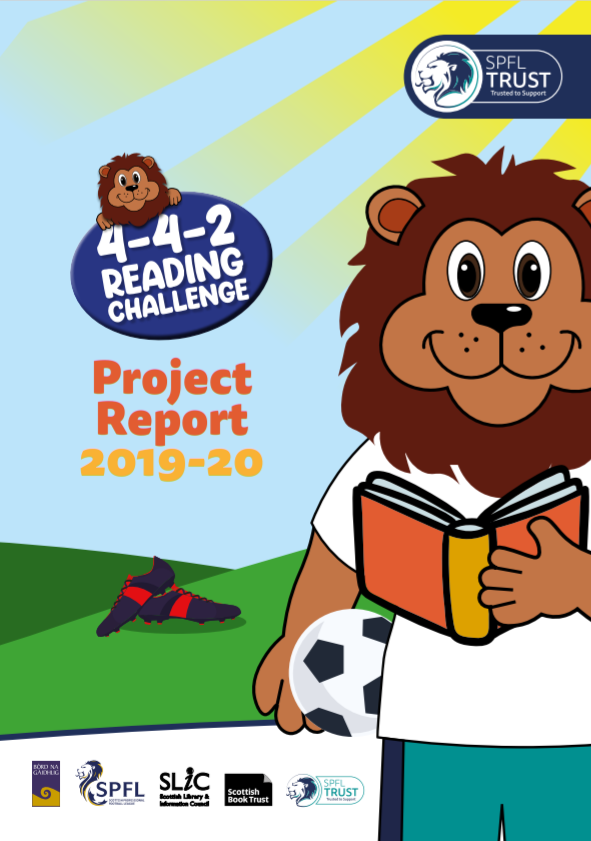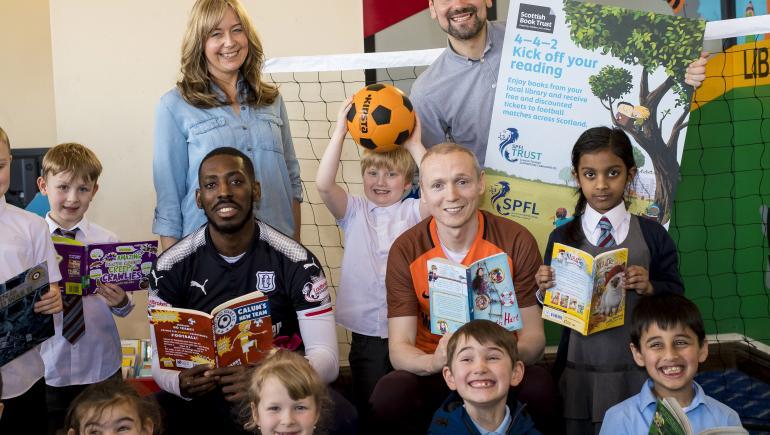The SPFL Trust has released this year’s project report for its 4-4-2 Reading Challenge.
The report shows an increase in children engaged, and challenges completed despite an early end of the project for this academic year due to Covid-19.
The 4-4-2 Reading Challenge was first established in 2017 by the Trust, which is the official charity of the Scottish Professional Football League (SPFL) and works in partnership with Scotland’s 42 professional clubs.
 It is an incentive-based programme aimed at inspiring children of primary school age to read four books at their local library. In return they earn two tickets to a participating SPFL club, free for themselves, and discounted for an adult.
It is an incentive-based programme aimed at inspiring children of primary school age to read four books at their local library. In return they earn two tickets to a participating SPFL club, free for themselves, and discounted for an adult.
This year’s report shows a 60% increase in participation (1233 children directly engaged) and 38% increase in books read to get tickets, with a Gàidhlig (Gaelic) version of the challenge introduced for the first time.
SPFL Trust chief executive, Nicky Reid, said: “The 4-4-2 Reading Challenge initiative is designed to encourage children who don’t regularly visit the library or attend a sport to do so.
“As such, we think it’s a real win-win opportunity for all concerned. The programme has engaged with nearly 40,000 kids in just under two full seasons, and we hope that can continue to grow.”
Whilst some of the other metrics used to determine the success are slightly down on a comparative basis, the trend of activity suggests that – across the board – the project would have shown growth by all measures had the participation period been the same as 2018.
In 2019-20, the SPFL Trust secured a grant from Bòrd na Gàidhlig to enable the challenge to be accessible in Gàidhlig. This comes at a time when there are an increasing number of schools providing Gaelic Medium Education (GME) across Scotland.
David Boag, Director of Language Planning and Community Developments at Bòrd na Gàidhlig said: “Bòrd na Gàidhlig is delighted to have supported the 4-4-2 Reading Challenge to ensure that pupils with Gaelic can participate in this exciting initiative.
“The project supports the aim that Gaelic is used more often, by more people and in a wider range of situations.”












